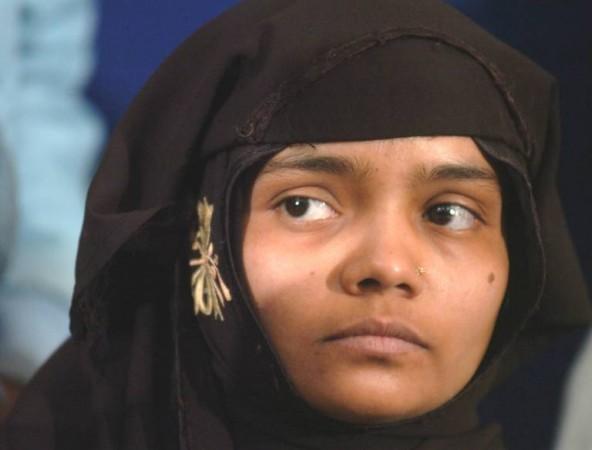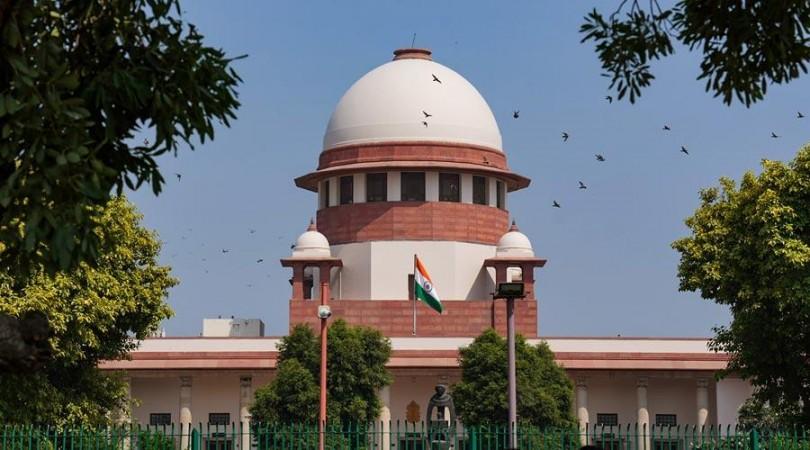
On Monday, with one strike of the gavel, the Supreme Court restored the faith of the millions in justice. The Apex Court not only struck down the relief granted by the Gujarat government in August 2022 to 11 men sentenced to life imprisonment for the gang rape of Bilkis Bano and murder of her family members during the 2002 Godhra riots, but in scathing language and harsh condemnatory words, it ordered the 11 to surrender back to the prison authorities.
A bench of Justice BV Nagarathna and Justice Ujjal Bhuyan said that Gujarat was not the appropriate government to decide on the remission of the 11 convicted men for the "grotesque and diabolical crime...driven by communal hatred."
The order also reprimanded the State and said that it "acted in tandem and was complicit with the convicts." Without mincing any words, the order also called the Gujarat government's decision to grant remission "an act of usurpation of jurisdiction and abuse of discretion."

The 251-page judgment, authored by Justice BV Nagarathna, strongly criticizes the ruling BJP government for acting "in tandem" with the prisoners in ordering their early release and thus is being viewed as a big blow to the Centre. "A woman deserves respect however high or low she may be otherwise considered in society or to whatever faith she may follow or any creed she may belong to. Can heinous crimes against women permit remission of the convicts by a reduction in their sentence and by granting them liberty?" said the judgment.
Elaborating on the technicality of the flawed remission, the bench pointed out that Section 432(7)(b) of The Code of Criminal Procedure clearly states that the State within which the offender is sentenced is the appropriate government to pass the order of remission. However, this does not translate to the one where the crime took place or where the convict was imprisoned.
Thus ordering the men to report back to jail within 14 days, the court declined their fervent pleas for sympathy and personal liberty. Ordering status quo ante, Justice Nagarathna reasoned that for the convicts to file a plea for remission again, they had to be back in prison first. While ordering so, the court also clarified that Gujarat did not have the jurisdiction to grant remission to the convicts.
Bano's long road to justice
It's been an unending, long and arduous journey to getting justice for Bilkis Bano. 21-year-old Bilkis Bano was gangraped, three months pregnant at the time, while her three-year-old daughter was among the seven of her family members killed by a mob of 11 men on March 3, 2002, during the riots that took place in Randhikpur Village in Limkheda Taluka of Gujarat's Dahod district.
Unfortunately, in the allegations and counter allegations, Bilkis Bano's case became politicized.
In December 2003, Supreme Court directs CBI inquiry into Bilkis Bano case and more than 2 years after the crime was committed, the case was transferred by the Supreme Court in August 2004 from Gujarat to Maharashtra, citing, "exceptional circumstances," while observing that Ms Bano had been, "coerced to live the life of a nomad and an orphan. The gruesome and horrific acts of violence have left an indelible imprint on her mind which will continue to torment and cripple her."
Finally, in the January of 2008 a CBI Special Judge in Greater Mumbai convicts 11 men sentencing them to life imprisonment. Though in 2016, Bombay HC reserves judgment on appeals filed by the 11 convicts, in 2017 it upholds their life sentences. In May 2022, the Supreme Court directed the State government of Gujarat to consider the plea of a convict for premature release. In August 2022, as part of the Gujarat government's remission policy, 11 convicts were released from Godhra sub-jail because of their "good behavior" drawing widespread condemnation.
After the SC order, Bano said in a statement through her lawyer, "I have shed tears of relief and smiled for the first time in over a year and half. I have hugged my children and this burden, the weight of a mountain, has been lifted off my chest and I can finally breathe again."
Justice still pending
Bano's case is one of the many riot cases to have come to light in the three day period of inter communal violence in Gujarat in 2022. More than 1000 people, mostly Muslims, died in the riots which began after 60 Hindus died in a fire in a Godhra train. While several conspiracy and political theories exist, the cause of the fire has never been clearly established.
Though activists and NHRC wanted the trials to be held outside Gujarat, India's Supreme Court in 2009 ordered the establishment of five special courts to try the huge backlog of cases related to communal riots in the state. The fast-track courts, aimed at holding daily hearings, were set up in five different districts in Ahmedabad.
Till July of 2023, nine cases were still under investigation by the Supreme Court appointed SIT (Special Investigation Team), which includes the main Godhra train fire incident itself which set off the Gujarat 2022 riots. A month back in December 2023, the SIT re-investigating nine riots cases withdrew police and paramilitary protection to all the witnesses and retired judge Jyotsna Yagnik after reviewing the threat perception to them.

















